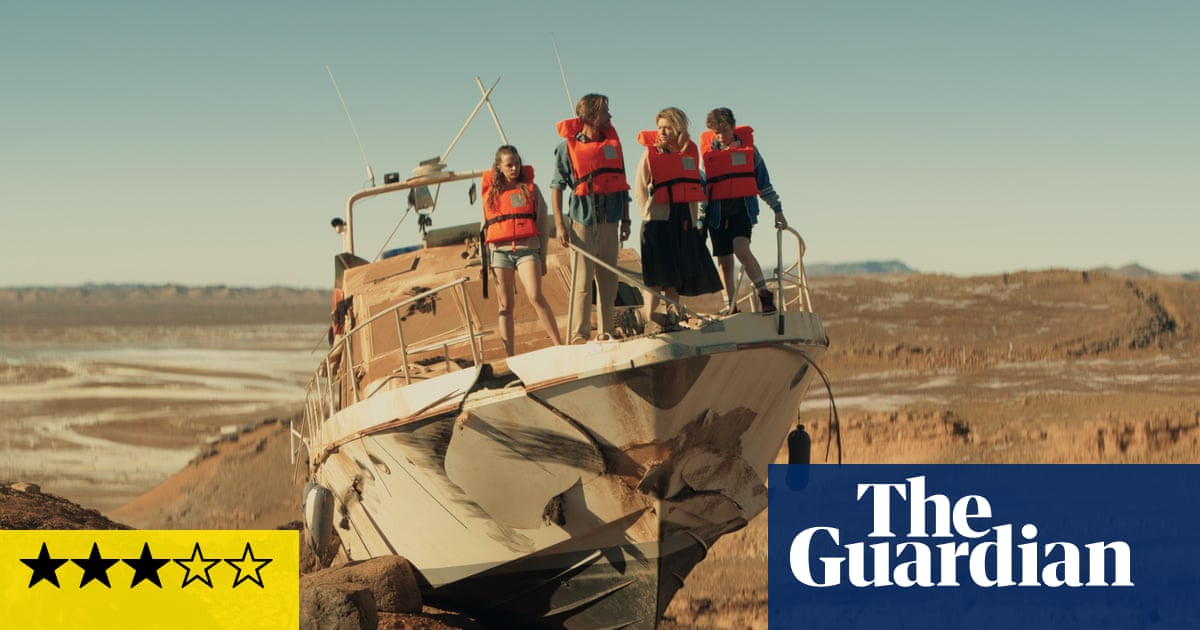At one point in this smart, low-budget French disaster movie/post-apocalyptic thriller, teenager Ben (Lucas Ebel) pees into an unplumbed toilet dumped in the wasteland. It’s a moment emblematic of Frédéric Jardin’s film; it makes little practical sense, but is packed with arresting images and proceeds with something close to the dream logic of Luc Besson’s debut The Last Battle, and the great comic-book artist Moebius.
Ben is on a Caribbean family cruise with his revoltingly-in-love parents, Julia (Émilie Dequenne) and Tom (Andreas Pietschmann), and his just-plain-revolting older sister, Cassie (Lisa Delamar). After nervy whales graze their yacht, satellites fall burning through the atmosphere and a cataclysm begins, they awake to find their boat stranded on top of a promontory in an infinite desert. Go-getter dad Tom, who likes solutions, quickly finds the answer with his compass – the Earth’s poles have reversed, dumping the oceans where the land previously was, presumably killing millions, and leaving the boat high and dry.
The family manage to contact a similarly stricken deep-sea submersible and decide to trek towards it. With a stark preference for visual over verbal storytelling, Jardin woozily milks this surrealistic canvas (filmed on location in Morocco) for dreamlike snapshots: their boat exploding in the wilderness, bats escaping a stricken private jet, a hammerhead shark in a watercourse. But he doesn’t settle just for that: Jardin also goes for vigorous camera moves – to the point of occasional effortfulness in wringing out fresh juice from familiar setups, like the wild-eyed “man with the harpoon” (Arben Bajraktaraj) who torments the family.
Particularly in the initial stages, when the boat is at sea, Jardin probes the communal and private spaces, and this visual intensity is chiefly used to establish the domestic dynamics that are later scraped to the bone. This directorial pep, along with invested performances across the board, allows Survive to build a sense of family vulnerabilities that is rawer than the standard cheap audience-identification tactics usually used in blockbuster disaster movies. With heavy emotion underpinning the surreal grandeur, the low-budget limitations work in Jardin’s favour here.







